Exploring the Savannahs and Forests of Blackburn Estate, Tanzania
Filled with vast savannahs, endless valleys, and unique wildlife – Tanzania sits mightily in eastern Africa as a small but important contributor to the world supply of coffee. Mercanta proudly works with a number of Tanzanian partners and seeks to support the producers within the area. One, specifically, stands out, as a leader towards preserving biodiversity, natural resources, all the while producing interesting and beautiful coffee.
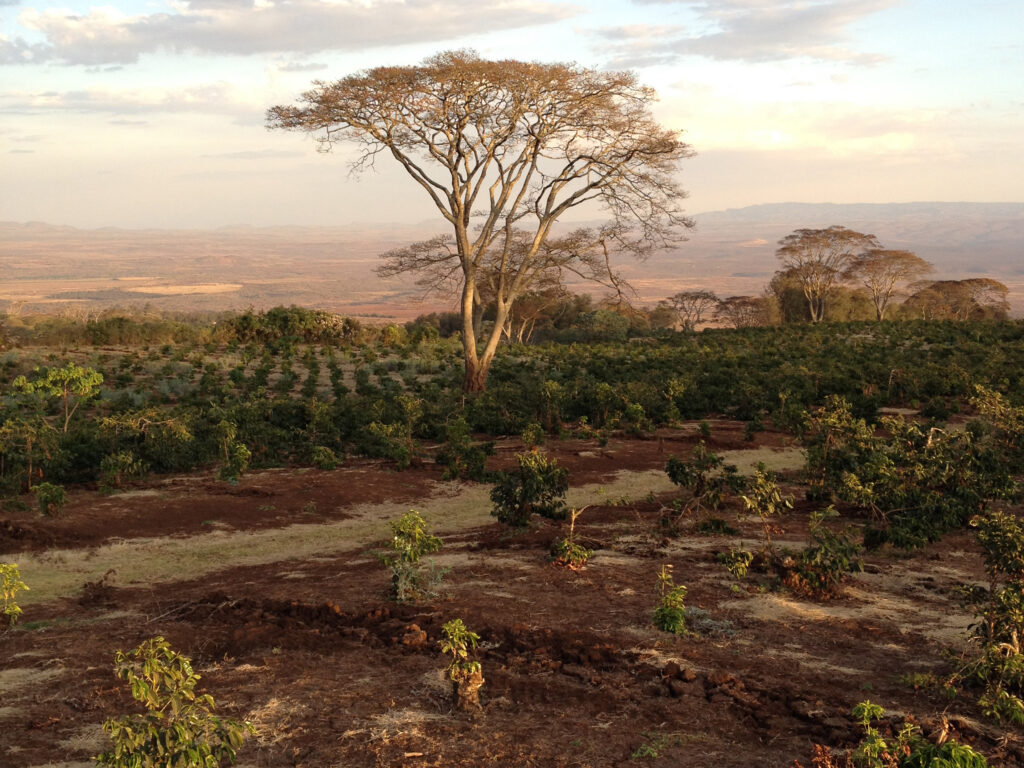
Coffee trees interlaced within wilderness area in Tanzania
Since the 1500s, coffee has been a major source of income and cultural interaction in the area known as Tanzania. The Haya tribe in Northwest Tanzania grew coffee and actually brewed a concoction of unripe cherries and herbs, creating amwani, to be chewed whole. Coffee was first grown for domestic and cultural purposes prior to the arrival of German colonists, which led to the insistence that producers grow coffee as a cash crop. Thus, coffee spread throughout the country, especially the rich soil surrounding Mount Kilimanjaro.
After WWI, the British took over control of the area encompassing Tanzania and attempted to improve the coffee industry. Thanks to the creation of cooperatives, smallholders gained access to processing facilities and improved markets. After earning independence in 1964, the two countries, Tanganyika and Zanzibar, combined to create the Republic of Tanzania. By the 1990s, coffee exports were privatized which allowed producers to sell directly to premium markets. Similar to Kenya, the Tanzanian auction system dominates the sale of coffee out of Tanzania. Created in the 1980s, this auction system has morphed into the current-day auction with goals to highlight the hard work of each producer – thus creating a transparent sale allowing traders to work directly with producers.
Today there are nearly 450,000 smallholder producers growing roughly 90% of the country’s coffee on plots ranging in size between 0.5 hectares and 3 hectares.
Annually, Tanzania produces 30,000 – 40,000 metric tons of coffee (19th in world production), with around 10% being produced by larger estates in the Arusha, Kilimanjaro, and Mbeya regions. Of these estates, is the aforementioned long-time Mercanta partner.
Behind the towering Mount Oldeani, or Bamboo Mountain, sits Blackburn Estate, over 500 hectares of wilderness area, conservation land, and coffee. This Estate is unique amongst other coffee farms in Tanzania, situated along the border of Ngorongoro Crater, a UNESCO World Heritage Site. Currently owned and managed by German-born Michael Gehrken, Blackburn Estate started in 1930, before being transferred to a Scotsman until finally reaching Gehrken’s father after WWII in 1949. Michael took over in 1983, as he fell in love with the stretches of grasslands and wildlife of East Africa. Originally planted with the ancient Nyasa varietal, the Estate teems with varieties ranging from Kent, KP423 and TC/10 – a hybrid resistant to the Coffee Berry Disease and drought, but not high yielding. Overall, Blackburn Estate produces coffee with unique tasting notes and of utmost quality.
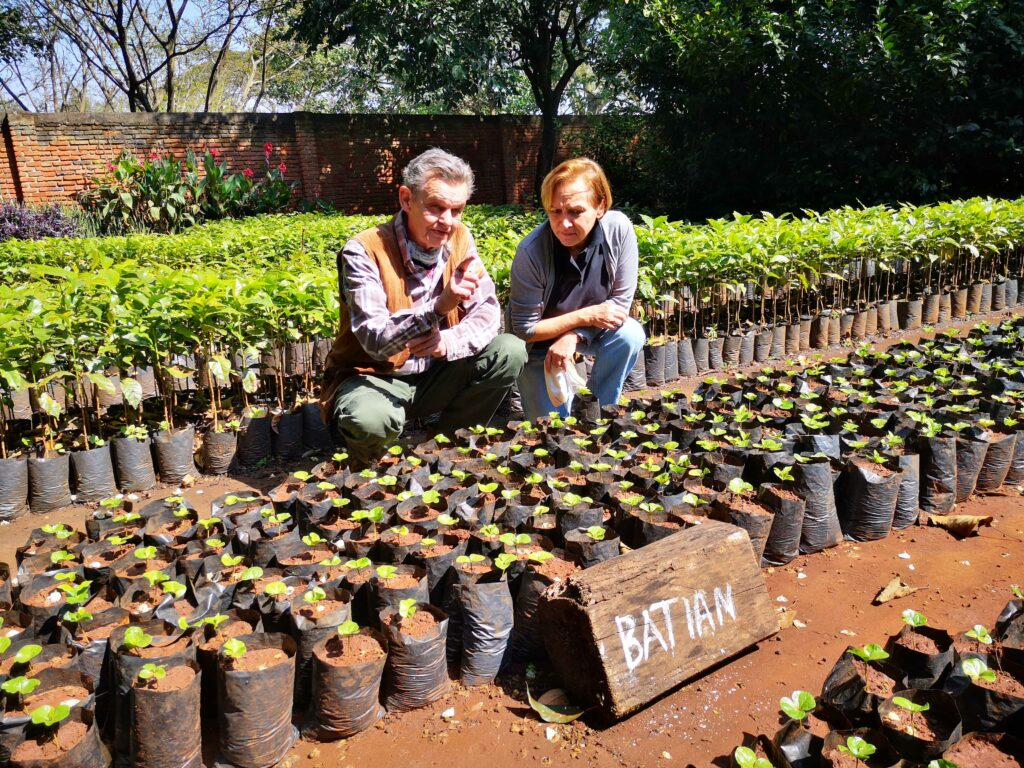
Michael and Tina Gehrken at the nursery in Blackburn, Tanzania
Not only is Blackburn rich in coffee diversity, but also in wildlife. The Estate glistens with innovation and magnificent coffee. With 66 ha of coffee surrounded by 212 ha of wildlife corridors and 117 ha of land dedicated to mulch production – this grand area roars with rich biodiversity as coffee trees sway throughout. The wildlife corridors range from high rainforests and secondary forests to steppes and savannahs at the lower elevations. Within Blackburn, it is common to cross paths with lions, buffalo, elephants, and leopards amongst a variety of other wildlife. Just recently, Gehrken noted that a whole day’s work was delayed due to the rampant fighting between a herd of buffalo and a collection of lions. Overall, records reveal that there are 21 species of reptiles, 80 species of birds, and 43 species of mammals. Wilderness conservation and maintenance of biodiversity are important goals at Blackburn, in addition to soil and ecosystem preservation.
Mercanta has a special relationship with Gehrken and Blackburn. A special memorial was created in the Estate known as Grant’s Valley for the late Grant Rattray, one of Mercanta’s finest. These 5 hectares shine brightly in the Estate to commemorate the hard work of Grant in the world of coffee.
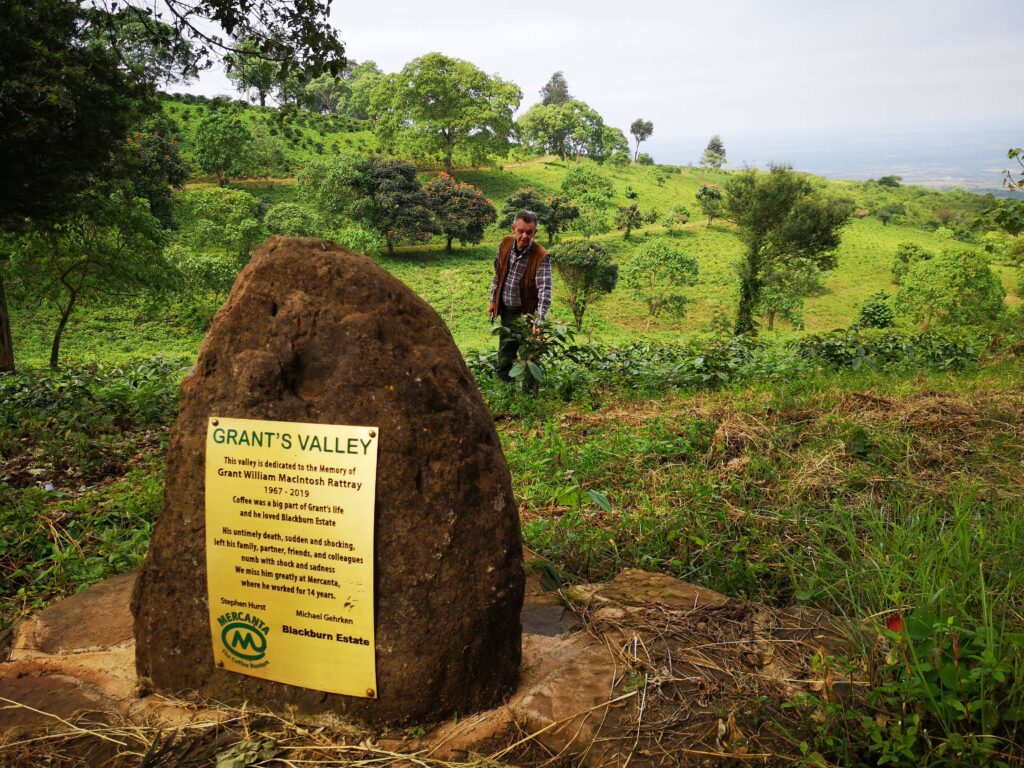
Grant’s Valley, Blackburn Estate, Tanzania
The soils of Blackburn were heavily exhausted from years of growing arable crops. So, Gehrken decided to transition his arable land into fields of grass, to produce hay that would contribute to the mulch production for the coffee. Today there are nearly 76 different species of grass within Blackburn. By producing grass rather than arable crops such as wheat, the soil is constantly replenished, while nutrients and the topsoil remains intact thanks to the no-till system enforced by the Blackburn team. The mulch is then applied to the coffee fields and helps provide protection to the soil and retains moisture. Not only that, but mulching the soil prevents erosion and contributes organic matter to the top layer. No insecticides are used thanks to the presence of ladybug species that provide natural benefits to the coffee. With these innovations, not only are coffee trees healthier, but surrounding ecosystems remain intact – providing the ideal environment for coffee production.
Over time, more shade trees were also planted such as Grevillea and Albizzia, weaving through the coffee plantation, to provide shade and create habitats for local species. In total, there are roughly 79 different species of native trees and bushes. This increased biodiversity within the lower altitudes of the Estate and helped earn a CAFÉ certification for Blackburn amongst a number of other environmental awards. Surprisingly, the Estate is responsible for sequestering more than 4,000 tons of CO2 each year – an impressive feat for a coffee farm in Africa. By obtaining emission certificates for farms and villages, it could lead to increased revenue for products such as coffee. Producers could follow Blackburn’s footsteps, and replant trees, thus restoring wildlife corridors, which would indirectly increase their income. In just the past three years alone, Gehrken and his staff have planted over 18,000 coffee trees and 2,000 native species for shade.
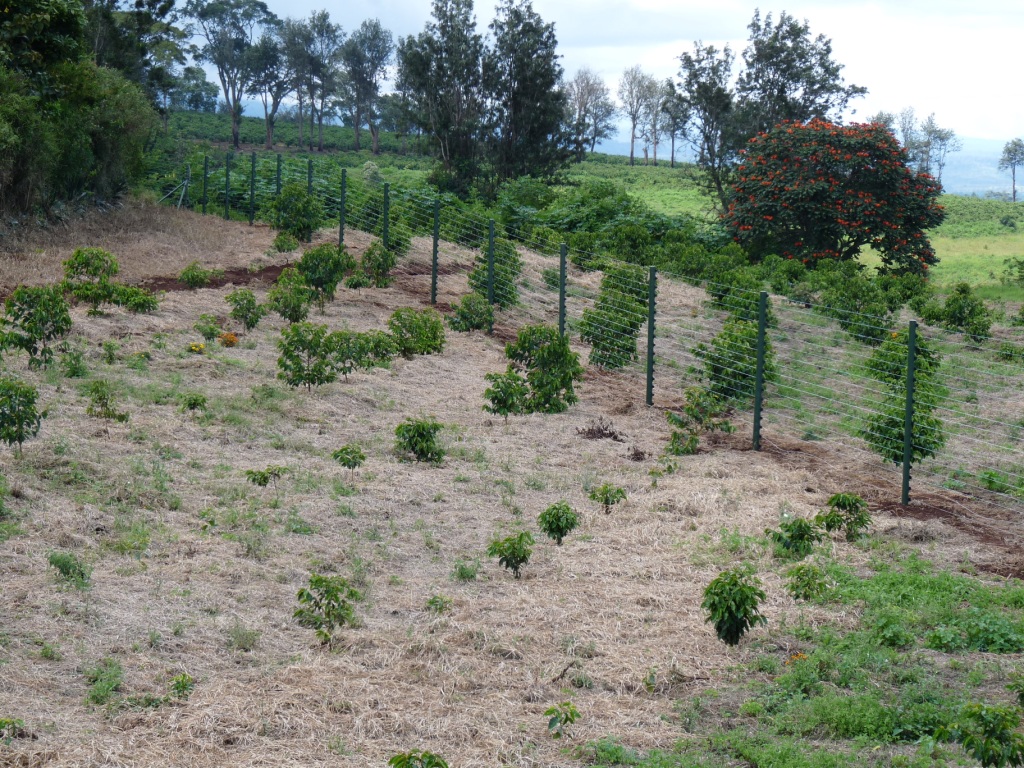
Coffee growing with protective grass mulch, Blackburn Estate, Tanzania
New varietals will be trialed at Blackburn to work towards planting more resistant varietals that are high yielding. Amongst these will be Pacamara and Batian – both resistant to disease and drought whilst maintaining high yields and quality. Gehrken remains loyal, however, to the ancient Nyasa variety.
The coffee is cultivated, maintained, picked, and processed by local community members. Thanks to Blackburn, and the work of specialty roasters worldwide, new facilities such as schools have been constructed for the surrounding communities. Donations are regularly made to the health and education sector in the Karatu district, and a number of water projects have been completed by Blackburn, improving the community’s access to drinking water.
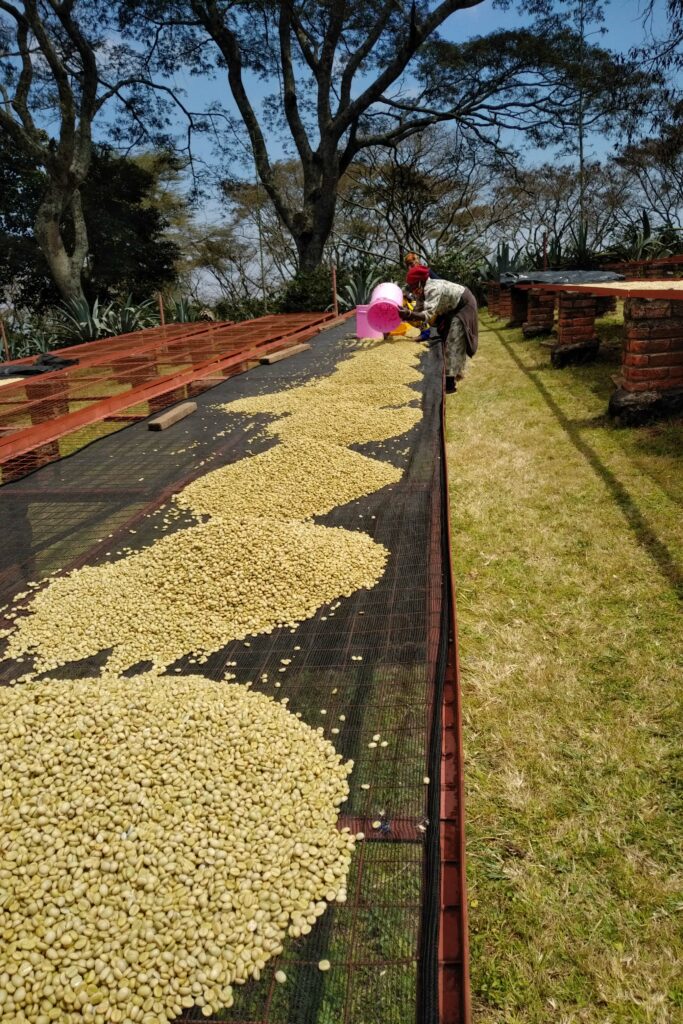
Coffee drying on raised beds at Blackburn Estate, Tanzania
For processing, the coffee is fermented, washed, and dried at Blackburn with its own wet mill, and the parchment is sent to a dry mill for hulling. Water from springs situated on Mount Oldeani have created two reservoirs used for pulping. Gehrken carefully constructed lined earth dams to collect rainwater and river flows to provide additional water sources for the coffee and for the wildlife. Annual production varies depending on weather conditions, but in 2019, Blackburn produced 67.9 tons of coffee, some of which was allocated to Blackburn’s own roastery in Tanzania.
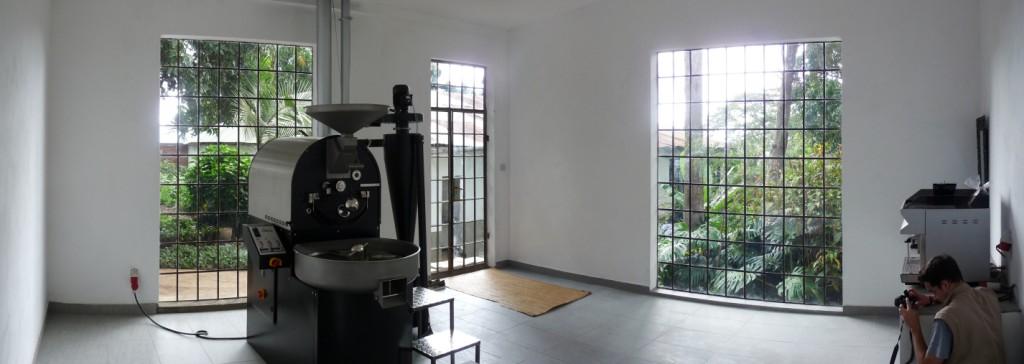
Blackburn Estate’s Roastery, Tanzania
With regards to climate change, due to the high elevation within Blackburn, a common theme within Tanzania is the alteration in rainfall patterns. With more rain at unexpected times, it has caused a confusion amongst the trees. Flowering and fruiting have become difficult in some areas, and colder temperatures have also limited production. However, Blackburn’s trees have adapted to this change and are faring well. The rains can, in some cases, pose a hindrance to processing.
As Michael and his wife Tina relax after a long day’s work, they reflect on the impact they have had on overall coffee production, nature, and the local communities within Tanzania. Their efforts have not only increased coffee production, but have also provided jobs, improved schools and facilities whilst also preserving biodiversity in the rich and beautiful Tanzanian wilderness. Gehrken has begun training his neighbors on how to create wildlife corridors – lending to the increase in yield and protection of local species. Thus, creating a future for coffee and for wildlife.
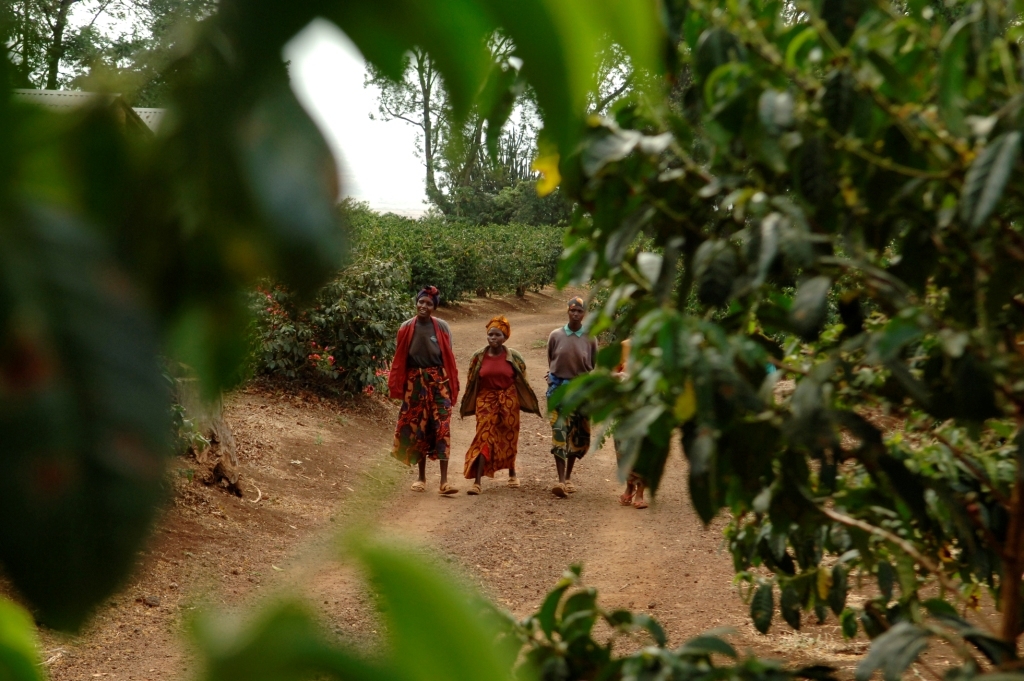
Locals trotting through Blackburn Estate, Tanzania
Mercanta has purchased coffee from Blackburn in the past. Harvest is currently underway and Mercanta hopes to sample this year’s harvest.